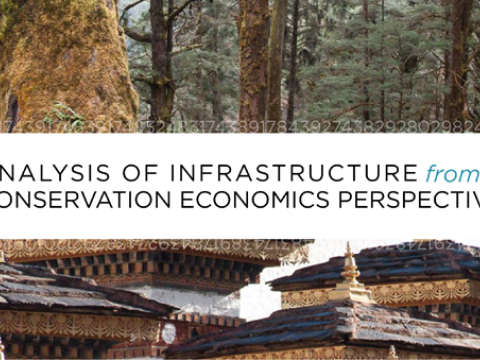Training Partner Network launched in Mexico and Bhutan
CSF is launching its Training Partner Network as part of our Conservation Economics Initiative to bring economics training to more conservation professionals around the world. This effort is made possible thanks to a grant from the Gordon and Betty Moore Foundation.
One of the cornerstones of the Initiative is a network of CSF Training Partner organizations offering conservation economics training in parts of the world where we do not have our own training teams. The Network will be supported by CSF and by our academic partners throughout the globe.
Our first 2014 Training Partner is the Ugyen Wangchuck Institute for Conservation and Environment (UWICE) in Bhutan. This partnership has evolved over the past five years after an UWICE delegate attended CSF’s international course in 2009, and CSF delivered a short course in Bhutan in 2010. The Training Partner model will help UWICE develop into a center of excellence in conservation economics training in the region. The first Training Partner course will be at UWICE in Bumthang, Bhutan May 12-16, 2014, with a focus on analysis of large-scale infrastructure development. For more information about the course and to access the course application, click here.
Our second 2014 Training Partner is the National Autonomous University of Mexico (UNAM), supported by a collection of CSF international course graduates representing Fondo Mexicano para la Conservacion de la Naturaleza (FMCN) MAR Leadership Program, Comunidad y Biodiversidad A.C. (COBI), the National Commission of Natural Protected Areas (CONANP), Environmental Defense Fund (EDF), and The Nature Conservancy (TNC). These CSF graduates have brought their inspiration and motivation to work with CSF over the past year to develop an ongoing model for conservation economics training in Mexico. The first Training Partner course will be on the UNAM Mexico City campus June 9-20, 2014, with a focus on both terrestrial and marine environments.
CSF is providing partners with:
- teaching materials, including lectures, exercises, case studies and course readings;
- our roster of instructors;
- free online platforms for course applications, evaluations and materials distribution;
- course marketing and outreach via our website and network;
- detailed guidance on logistics and teaching strategies;
- assistance with instructor recruitment and preparation;
- investment of CSF staff resources for planning and implementation of the first course;
- on-site mentoring by CSF staff the first time partners give a course; and
- CSF’s certification and endorsement that courses meet with the highest standards of quality.
Partner commitments are to continue to offer the course on an ongoing basis. CSF Conservation Economics Training Partners in each country/region will have access to CSF training resources and connections to Training Partners from other regions for the purposes of sharing experiences and materials such as readings, exercises, case studies and lectures.
Photo above is from the UNAM Training Partnership Meeting in December 2013
From left to right: Ángela Mojica, FMCN MAR Leadership Program, CSF International Course 2012, Kim Bonine, CSF Training Director, Cecilia Ayala, CSF Bolivia Program Director, Eduardo Ponce, UNAM, CSF International Course 2012, Eglé Flores, COBI, CSF International Course 2011, Diana Bermúdez, TNC, CSF International Course 2008, María Eugenia Arreola, FMCN MAR Leadership Program, Laura Rodríguez, EDF México, CSF International Course 2010
- Log in to post comments

